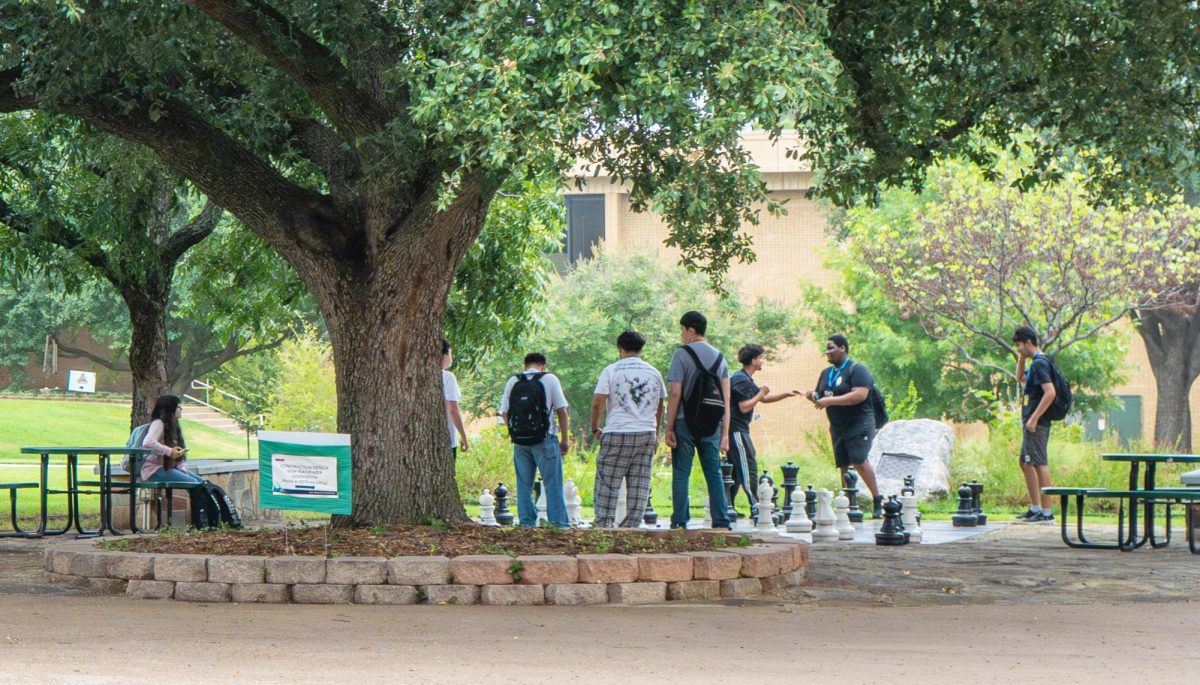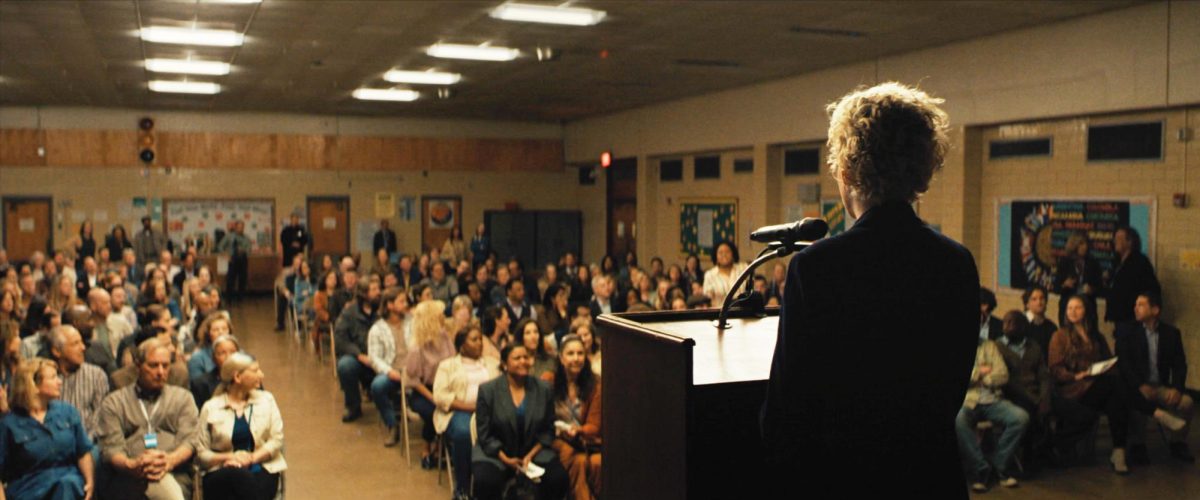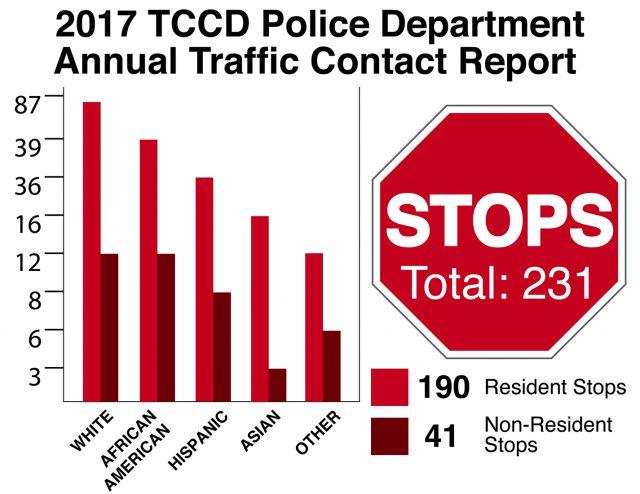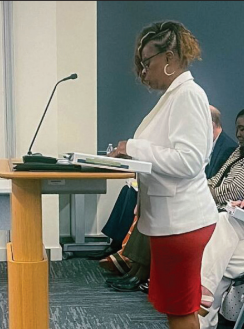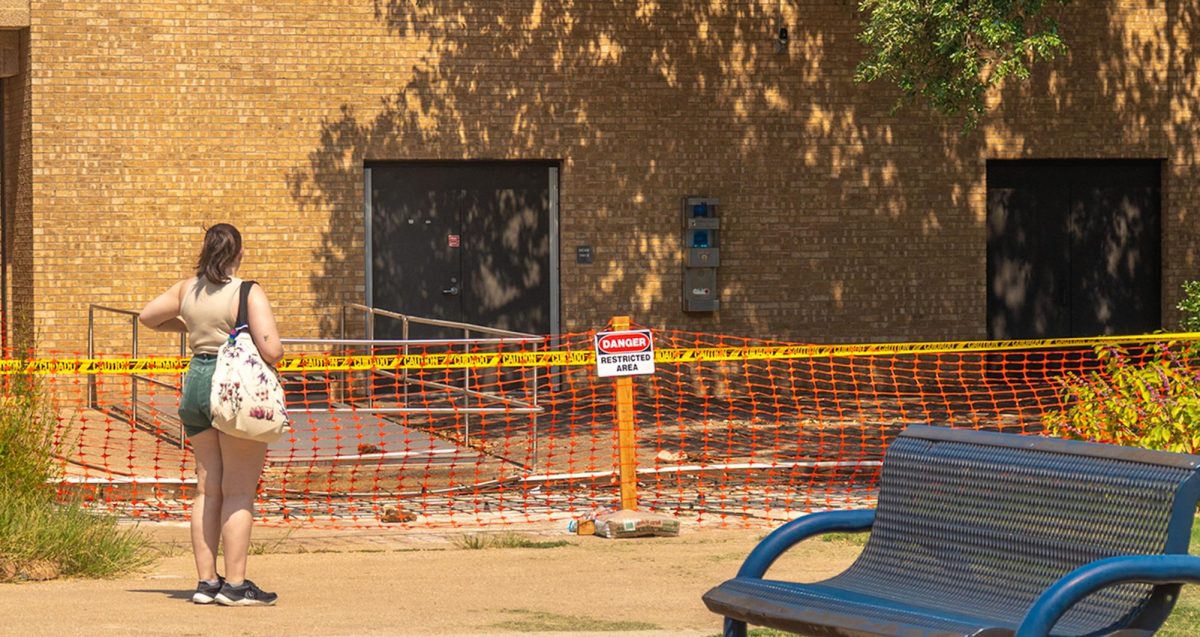By Kathryn Kelman/editor-in-chief
TCC released its annual traffic contact report at the March 22 board of trustees meeting, which found the college’s police department does not practice racial profiling in regard to traffic stops.
The Texas Racial Profiling Law was enacted in 2001 by the Texas Legislature to aid in the prevention of traffic stops by officers based on the race or ethnicity of a driver, said Angela Robinson, administration vice chancellor and general counsel, who presented the report to the board.
“It mandates that police officers receive training as related to profiling individuals based off of their race or ethnicity and requires police departments publish a report showing the contacts made by the department,” she said.
The Texas Code of Criminal Procedure requires local governing bodies collect data on the race or ethnicity of people stopped and issued citations or arrested in relation to traffic stops and whether those individuals were searched.
“Since the law provides no clear instruction to a governing body on how to review such data, the Tarrant County College District Police Department requested this analysis and review,” states the report.
According to the report, TCC police met all the law’s requirements, Robinson said.
“The findings indicate that overall traffic stops are being conducted around our campuses are compliant and do not have any readily identifiable issues as related to race or ethnicity being a factor for the stops,” Robinson said.
The report looks at both resident and non-resident stops. Robinson said the difference between the two is that a resident is a current student while a non-resident is not.
According to the report, TCC police made a total of 231 stops in 2017. Of those stops, white student or employee drivers accounted for 45.79 percent of them, which is higher than the college’s 39.65 percent white population. African-American drivers constituted 20.53 percent of the stops, which is also higher than the college’s 17.38 percent African-American population. Asian-American drivers accounted for 8.42 percent of the stops made yet make up 6.04 percent of TCC’s population.
However, Hispanic drivers were stopped at a lower rate than their percentage in the college’s population, according to the report.
“Other” identified persons accounted for 18 of the 231 stops while white drivers accounted for 99, African-American drivers accounted for 51, Hispanic drivers accounted for 44 and Asian drivers accounted for 19 stops made by TCC police in 2017.
The 2017 report was also consistent with last year’s and previous years where TCC was also found to satisfy all requirements of the state’s racial profiling law.
“I believe the findings represent the professionalism our agency strives to achieve in our interaction with the college community we serve,” she said.
To adhere to the law, police collect traffic and vehicle-related contact data to identify any potential areas of concern for racial profiling practices, according to the memorandum Robinson presented.
The review of the data also found that TCC police met the training requirements outlined by the law.
“TCCPD is continually exploring training opportunities that will increase our department’s overall relations with the community we serve and will continue to do so in the area of vehicle contact,” Robinson said.
The board reviewed the report at a governance meeting earlier in the month and didn’t ask questions at the public board meeting regarding the report.
As for what students, faculty and staff should know, Robinson said all should be aware that Texas traffic laws still apply on campus.
“People need to drive posted speeds on campus, follow directional arrows in parking lots and stop at posted stop signs,” she said, adding that they should also keep vehicle inspections, registration and insurance up to date.
Adhering to Texas traffic laws while on campus will decrease an individual’s chance of being stopped while on campus, she said.
“Also, if a person is stopped on campus and receives a citation or verbal warning they will receive a feedback card with information on how to report any complaints or commendations to TCCPD,” Robinson said.





